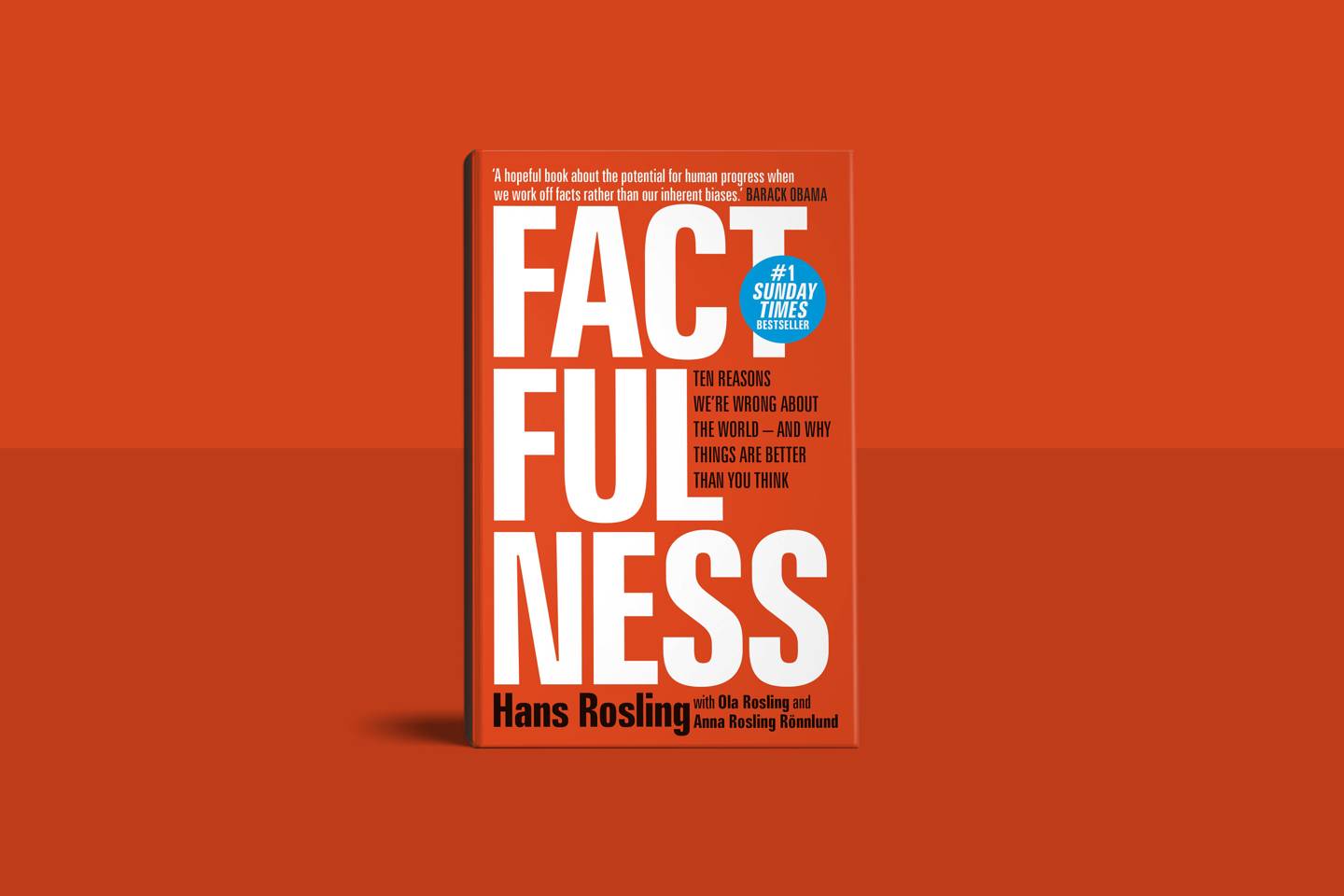One of the timelier books I’ve read recently, Factfulness makes the simple argument that we should only hold opinions which are backed up by facts. For instance, did you know that the entire world is currently being lifted out of extreme poverty and into a global middle class? Humanity is not, in fact, split into the very rich on one end and the very poor on the other: most people are in the middle and moving up. The impacts of this are far-ranging and a cause for profound optimism, according to international health professor Hans Rosling. Reading Factfulness is an education in the most fundamental sense. What statements about the world are true, and which are false? Are things getting better or worse, and what can we do to help? Rosling and his co-authors (his son and his daughter-in-law) explain what makes the world such an anxious place even when almost everything is improving.
Factfulness is essentially a toolkit of mental exercises, mixed with a lesson in demographics and public health. The data presented in the book was honed over more than twenty years of traveling across the globe and talking to businesses, schools, and organizations. Rosling begins, “it was October 1995 and little did I know that after my class that evening, I was going to start my lifelong fight against global misconceptions.” Rosling discovered that, when asked to guess basic facts about world statistics – the percentage of girls who attend primary school worldwide, the percentage of people who are vaccinated, the projected age of the world population in 2100, and so on – people overwhelmingly guessed wrong. Not only wrong, but systematically wrong. He puts it this way: if given the choice between three bananas marked A, B, and C, and read the same 3-choice questions as Rosling posed to his classes, chimpanzees would be right 33% of the time. But Rosling found people from all over the world guessed worse than the chimpanzees – worse than random – often highly educated people did worse than less educated.
In trying to find the underlying mechanics for these systematic misconceptions, Rosling arrived at a set of mental exercises which can be practiced to undo what he calls our “dramatic instincts.” “The Gap Instinct”: when two extremes on either end of a spectrum are quoted, realise that oftentimes the majority of people fall in the middle. “The Negativity Instinct”: when it seems like things are getting worse, realise that the media tends to report small downward dips and ignore an overall upward trend. “The Straight Line Instinct”: when a projection of a trend into the future seems gloomy, realise that in many cases lines don’t continue on straight up in perpetuity. Over the course of ten Factfulness Rules, Rosling lays out a way of approaching the world which denies the tendencies of the media and our own instincts to make things appear worse than they are.
Factfulness: Ten Reasons We’re Wrong About the World – and Why Things Are Better Than You Think
Hans Rosling with Ola Rosling and Anna Rosling Rönnlund
Sceptre, 2018

